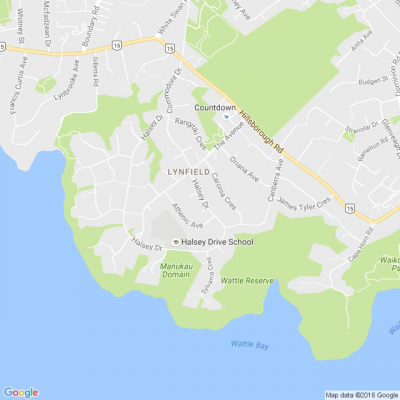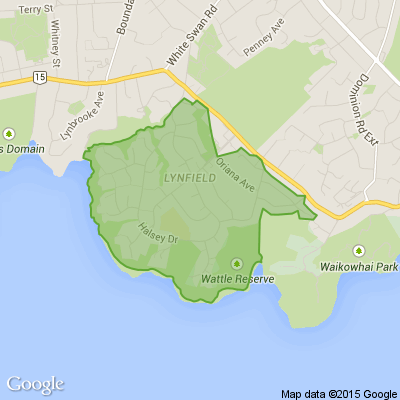JULY--1st----Today's changes that could affect your bank account
The start of July brings a raft of changes that will affect households across the country.
From prescription changes to mortgage tweaks, the rules, fees and taxes will affect the way that many people spend and borrow money.
Here are a few of them.
===================
Debt-to-income ratios and loan-to-value restriction tweaks
==============================================
New debt-to-income rules will limit how much banks can lend to borrowers, compared to their household income.
Only 20 percent of lending can go to owner-occupier buyers with a debt-to-income ratio of six, and only 20 percent of investors loans will be able to be at a debt-to-income ratio of more than seven.
The debt-to-income calculation takes into account other debt, such as student loans.
These rules are not expected to make a big difference initially, because not much lending is currently being done above those levels. However, they are likely to limit the extent of future house price growth.
At the same time, loan-to-value rules will be eased slightly to allow banks to give 20 percent of lending to owner-occupier borrowers with a deposit or equity of less than 20 percent, and 5 percent of lending to investors with a deposit or equity of less than 30 per cent.
Previously, they could only lend 15 percent to owner-occupiers with less than 20 percent deposit and 5 percent of lending to investors with less than 35 percent.
Prescription charges
=================
A $5 charge is coming back on for prescriptions.
This does not apply to people who are over 65, Community Services Card holders, people who are under 14 or people ages 14 to 17 who are dependent on a Community Services Cardholder.
Auckland regional fuel tax abolished
==============================
The Auckland Regional Fuel Tax scheme ended on 30 June.
This is worth 11.5c per litre on petrol, diesel and their biovariants.
FamilyBoost introduced
===================
The FamilyBoost policy takes effect from 1 July, offering a payment of 25 percent of early childhood education fees for households up to $75 a week.
This is available in full to households earning up to $140,000 and reduces for those earning up to $170,000.
Households should start saving their invoices from 1 July as either PDF or JPG files, Inland Revenue says.
Payments will be made in three-monthly blocks, starting in October.
Bright-line test reduced
===================
From 1 July, the bright-line test will reduce to two years, from the current 10 years, or five for new builds.
The bright-line test sets a limit on how long properties, apart from someone's main home, have to be held to avoid tax on capital gains when they are sold.
That means that properties sold on or after Monday now need to have been held for at least two years to avoid the automatic tax.
Chartered Accountants Australia and New Zealand is warning there could be some confusion, though, because the new rules focus on the "disposal" date of a property rather than the acquisition date.
"Care needs to be taken as the dates are determined differently. The bright-line end date is determined by when the seller first enters a contract for sale, whereas the start, or acquisition date is typically determined when title transfers."
He said that could mean that anyone who had entered negotiations before 1 July could still be captured under the old rule.
Paid parental leave increases
========================
Each year, the maximum amount of paid parental leave available increases.
How much you get is determined by how much you were earning before you went on leave.
From 1 July, the maximum is $754.87 a week before tax, compared to $712.17 previously.
Gaming duty for offshore operators
=============================
From 1 July, a 12 percent offshore gambling duty applies operators who are taking bets from New Zealand residents.
Offshore gambling operators have to register for GST if they make more than $60,000 in a 120-month period. Those that are registered for GST must also now register for the duty.
Excise tax on alcohol increases
The annual adjustment of excise tax on alcohol takes place on 1 July. This is based on movements in the consumer price index in the year to March.
=================================================
www.newshub.co.nz....
==================================================

Dry cleaners mt Roskill
Hello our fellow neighbors I was hoping someone would know where the old dry cleaners we had up at the lights on dominion road have moved to?? I was out of town and when I came back they were gone .... I had some items that I would really love to get back but if only I new where they moved to or how to get In Touch with the owners to see what they did with our clothes if they closed down or moved elsewhere? Any updates or news about it would be amazing neighbors. Have a great day
Poll: As a customer, what do you think about automation?
The Press investigates the growing reliance on your unpaid labour.
Automation (or the “unpaid shift”) is often described as efficient ... but it tends to benefit employers more than consumers.
We want to know: What do you think about automation?
Are you for, or against?

-
9.4% For. Self-service is less frustrating and convenient.
-
43.5% I want to be able to choose.
-
47.1% Against. I want to deal with people.
Even Australians get it - so why not Kiwis???
“Ten years ago, if a heatwave as intense as last week’s record-breaker had hit the east coast, Australia’s power supply may well have buckled. But this time, the system largely operated as we needed, despite some outages.
On Australia’s main grid last quarter, renewables and energy storage contributed more than 50% of supplied electricity for the first time, while wholesale power prices were more than 40% lower than a year earlier.
[…] shifting demand from gas and coal for power and petrol for cars is likely to deliver significantly lower energy bills for households.
Last quarter, wind generation was up almost 30%, grid solar 15% and grid-scale batteries almost tripled their output. Gas generation fell 27% to its lowest level for a quarter century, while coal fell 4.6% to its lowest quarterly level ever.
Gas has long been the most expensive way to produce power. Gas peaking plants tend to fire up only when supply struggles to meet demand and power prices soar. Less demand for gas has flowed through to lower wholesale prices.”
Full article: www.theguardian.com...
If even Australians see the benefit of solar - then why is NZ actively boycotting solar uptake? The increased line rental for electricity was done to make solar less competitive and prevent cost per kWh to rise even more than it did - and electricity costs are expected to rise even more. Especially as National favours gas - which is the most expensive form of generating electricity. Which in turn will accelerate Climate Change, as if New Zealand didn’t have enough problems with droughts, floods, slips, etc. already.







 Loading…
Loading…